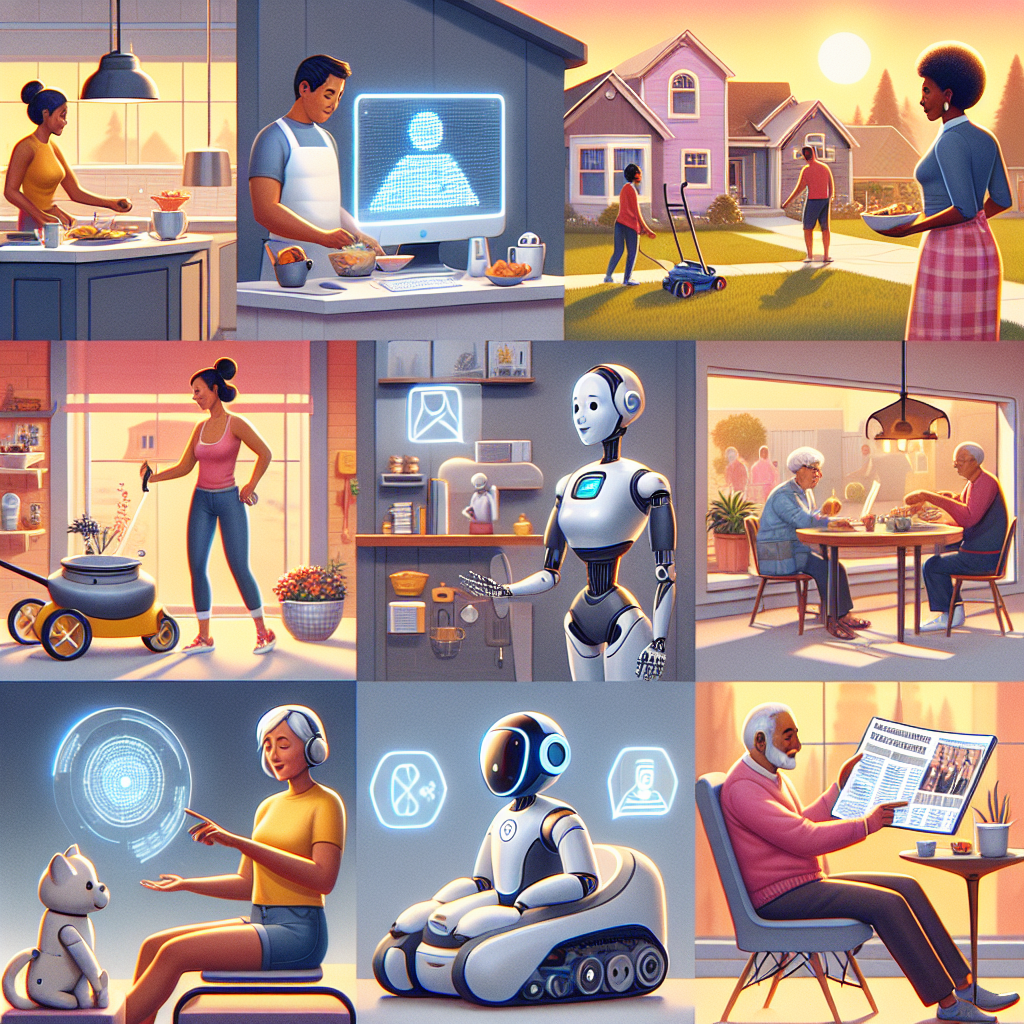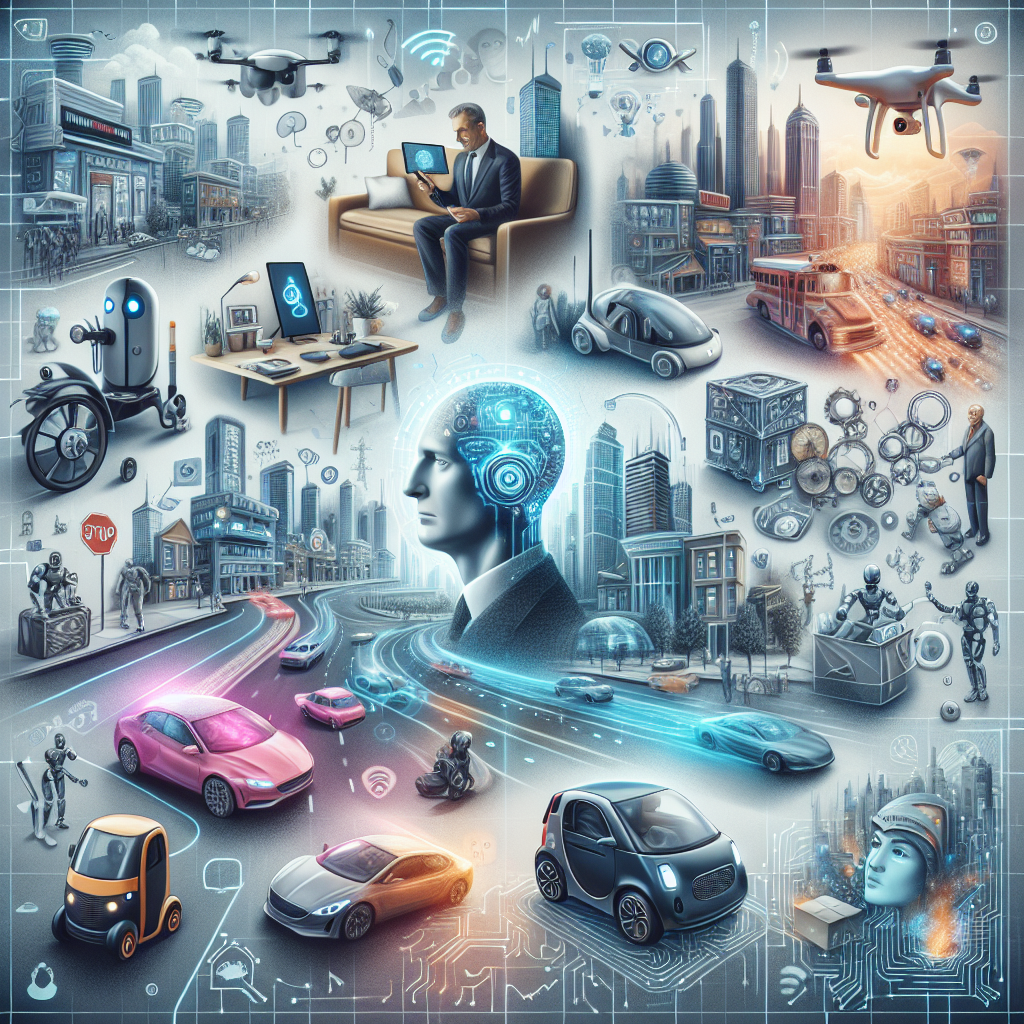The Impact of AI on the Job Market
Artificial intelligence (AI) has been a buzzword in the tech industry for quite some time now. From self-driving cars to virtual assistants, AI has made its way into our everyday lives in ways we couldn’t have imagined just a few years ago. While the advancements in AI have brought about convenience and efficiency, there is also a growing concern about its impact on the job market.
The rise of AI has led to the automation of many tasks that were previously done by humans. This has resulted in the displacement of jobs in various industries, from manufacturing to customer service. According to a report by McKinsey, up to 800 million jobs could be lost to automation by 2030. This has caused many to question the future of work and the role of AI in it.
One of the most affected industries by the rise of AI is manufacturing. With the introduction of robots and automated systems, many manual labor jobs have been replaced. This has led to a decrease in the demand for human workers, resulting in job losses. In fact, a study by the International Federation of Robotics found that for every robot introduced into the workforce, six jobs are lost. This trend is expected to continue as companies strive for increased efficiency and cost savings.
Another industry that has been greatly impacted by AI is customer service. With the rise of chatbots and virtual assistants, many companies have shifted towards using AI to handle customer inquiries and support. This has resulted in a decrease in the number of human customer service representatives needed, leading to job losses. While AI-powered customer service can handle simple and routine tasks, it lacks the empathy and problem-solving skills that humans possess. This has raised concerns about the quality of customer service and the impact on customer satisfaction.
The impact of AI on the job market is not limited to manual labor and customer service jobs. Even highly skilled and specialized jobs are at risk of being replaced by AI. For example, AI-powered software can now analyze and interpret medical images with a higher accuracy rate than human doctors. This has raised concerns about the future of radiologists and other medical professionals who rely on image analysis as part of their job. Similarly, AI-powered legal software can now review and analyze legal documents, potentially replacing the need for paralegals and junior lawyers.
However, it’s not all doom and gloom when it comes to the impact of AI on the job market. While it may lead to job losses in some industries, it also creates new job opportunities in others. The development and maintenance of AI systems require a highly skilled workforce, creating jobs in fields such as data science, machine learning, and AI engineering. In fact, a report by the World Economic Forum predicts that AI will create 58 million new jobs by 2022.
Moreover, the rise of AI has also led to the creation of new industries and job roles. For example, the development of self-driving cars has created a demand for engineers and technicians to design and maintain these vehicles. Similarly, the rise of virtual reality and augmented reality has created a demand for content creators and developers in the gaming and entertainment industry.
In conclusion, the impact of AI on the job market is undeniable. While it may lead to job losses in some industries, it also creates new job opportunities in others. As AI continues to advance and become more integrated into our everyday lives, it is crucial for individuals to adapt and acquire new skills to stay relevant in the job market. It is also important for companies to consider the ethical implications of AI and ensure that it is used responsibly to benefit both businesses and society as a whole.
Ethical Considerations in AI Development

Artificial intelligence (AI) has become an integral part of our daily lives, from virtual assistants like Siri and Alexa to self-driving cars and personalized recommendations on social media. As AI technology continues to advance, it is important to consider the ethical implications of its development and use.
One of the main ethical considerations in AI development is the potential for bias. AI systems are trained using large datasets, and if these datasets are biased, the AI will also be biased. This can lead to discriminatory outcomes, such as facial recognition software misidentifying people of color or AI-powered hiring tools favoring certain demographics. To address this issue, it is crucial for developers to ensure that their datasets are diverse and representative of the population.
Another ethical concern is the impact of AI on the job market. With the rise of automation and AI, many fear that it will lead to widespread job loss. While it is true that some jobs may become obsolete, AI also has the potential to create new job opportunities. However, it is important for governments and companies to invest in retraining programs for those whose jobs may be at risk due to AI. This will help mitigate the negative effects of AI on the job market and ensure a smooth transition for workers.
Privacy is also a major ethical consideration in AI development. AI systems often collect and analyze vast amounts of personal data, raising concerns about data privacy and security. This is especially relevant in the healthcare industry, where AI is being used to analyze patient data and make medical diagnoses. It is crucial for developers to prioritize data privacy and implement strict security measures to protect sensitive information.
In addition to these concerns, there is also the issue of accountability in AI decision-making. As AI systems become more complex and autonomous, it becomes difficult to determine who is responsible for their actions. This is particularly problematic in cases where AI makes decisions that have significant consequences, such as in self-driving cars. It is important for developers to design AI systems with built-in mechanisms for accountability and transparency.
The potential for AI to be used for malicious purposes is another ethical consideration. As AI technology becomes more advanced, it can be used to create fake videos, manipulate public opinion, and even develop autonomous weapons. This raises questions about the responsibility of developers and the need for regulations to prevent the misuse of AI.
Furthermore, there is the issue of social inequality and the digital divide. As AI becomes more prevalent in our daily lives, those who do not have access to it or do not understand how to use it may be left behind. This can further widen the gap between the rich and the poor, creating a society where only a select few have access to the benefits of AI. To address this, it is important for governments and organizations to invest in education and provide equal access to AI technology.
Finally, there is the concern of AI taking over human jobs and decision-making. While AI has the potential to make our lives easier and more efficient, it is important to remember that it is still a tool created by humans. It is crucial for developers to ensure that AI systems are designed to work alongside humans, rather than replace them. This requires careful consideration of the ethical implications of AI and constant monitoring of its impact on society.
In conclusion, the rise of AI in everyday life brings about many ethical considerations that must be addressed. From bias and privacy concerns to accountability and social inequality, it is crucial for developers to prioritize ethical considerations in the development and use of AI. Only by doing so can we ensure that AI technology is used for the betterment of society and not to the detriment of humanity.
AI in Healthcare: Advancements and Challenges
Artificial Intelligence (AI) has been making waves in various industries, and one of the most significant areas where it has shown immense potential is healthcare. With the increasing demand for efficient and accurate healthcare services, AI has emerged as a game-changer in the field. From diagnosis to treatment, AI has the ability to revolutionize the way healthcare is delivered. In this article, we will explore the advancements and challenges of AI in healthcare.
One of the most significant advancements of AI in healthcare is its ability to assist in diagnosis. With the help of machine learning algorithms, AI can analyze vast amounts of medical data and identify patterns that may not be visible to the human eye. This can aid doctors in making accurate and timely diagnoses, especially in complex cases. Moreover, AI can also assist in predicting potential health risks and diseases, allowing for preventive measures to be taken.
Another area where AI has shown remarkable progress is in medical imaging. With the use of deep learning algorithms, AI can analyze medical images such as X-rays, MRIs, and CT scans, and provide accurate and detailed insights. This can help doctors in detecting abnormalities and diseases at an early stage, leading to better treatment outcomes. Additionally, AI can also assist in reducing the workload of radiologists, allowing them to focus on more critical cases.
AI has also made significant strides in drug development and discovery. With the help of AI, pharmaceutical companies can analyze vast amounts of data and identify potential drug candidates in a fraction of the time it would take using traditional methods. This not only speeds up the drug development process but also reduces the cost, making it more accessible to patients. Moreover, AI can also assist in predicting the effectiveness of a drug for a particular patient, leading to personalized treatment plans.
In addition to diagnosis and treatment, AI has also shown potential in improving patient care. With the use of chatbots and virtual assistants, patients can receive personalized and timely responses to their queries, reducing the burden on healthcare staff. Moreover, AI can also assist in monitoring patients remotely, allowing for early detection of any health issues and reducing the need for hospital visits. This is especially beneficial for patients with chronic conditions who require constant monitoring.
However, with all these advancements, there are also challenges that come with the integration of AI in healthcare. One of the major concerns is the ethical implications of using AI in decision-making processes. As AI is programmed based on data, there is a risk of bias and discrimination, especially in areas such as diagnosis and treatment. It is crucial for healthcare professionals to ensure that the data used to train AI is diverse and representative of the population to avoid any biases.
Another challenge is the potential job displacement of healthcare workers. With the automation of certain tasks, there is a fear that AI may replace human jobs in the healthcare industry. However, experts believe that AI will not replace healthcare professionals but rather assist them in their work, allowing them to focus on more critical and complex cases.
Moreover, there are also concerns about the security and privacy of patient data. As AI relies on vast amounts of data to function, there is a risk of data breaches and misuse of sensitive patient information. It is crucial for healthcare organizations to have strict protocols in place to protect patient data and ensure its ethical use.
In conclusion, the rise of AI in healthcare has brought about significant advancements and potential for improving patient care. From diagnosis to treatment and patient care, AI has the ability to transform the way healthcare is delivered. However, it is essential to address the challenges and ethical implications that come with the integration of AI in healthcare to ensure its responsible and ethical use. With proper regulations and protocols in place, AI can truly revolutionize the healthcare industry and improve the lives of patients worldwide.



